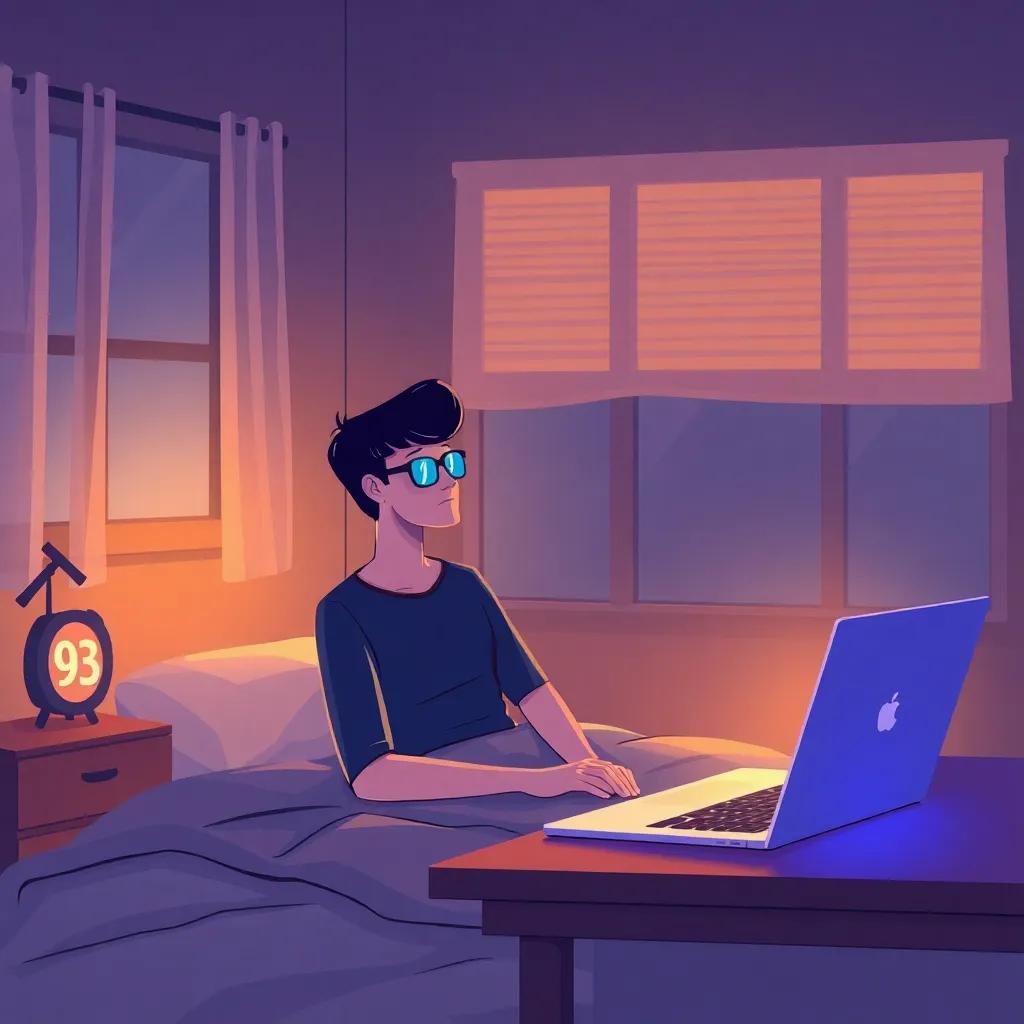Explore how blue light affects eye health and sleep, with tips on reducing exposure and maintaining healthy vision in a digital world.
Discover the science behind blue light’s impact on your health and learn practical ways to protect your eyes and improve sleep.
Understanding Blue Light and Its Sources
Blue light is a part of the visible light spectrum that can be seen by human eyes. It has a short wavelength, which means it produces higher amounts of energy. Sources of blue light include the sun, digital screens (computers, smartphones, tablets), LED and fluorescent lighting.
The Impact of Blue Light on Sleep
Exposure to blue light, especially before bedtime, can significantly affect your sleep quality. According to a study published in the Journal of Clinical Endocrinology & Metabolism
, blue light suppresses the secretion of melatonin, the hormone responsible for regulating sleep-wake cycles, more than any other type of light.
Protecting Your Eyes from Blue Light
Long-term exposure to blue light can lead to digital eye strain, characterized by dry eyes, irritation, and difficulty focusing. The American Optometric Association recommends using blue light blocking glasses and screen filters to mitigate these effects.
Lifestyle Changes to Reduce Blue Light Exposure
Reducing screen time, especially before bed, can help minimize blue light exposure. Implementing a ‘digital curfew’ and using devices with night mode settings can also be beneficial.
Scientific Support for Blue Light Blocking Measures
Research supports the use of blue light blocking interventions. A 2017 study in Ophthalmic & Physiological Optics
found that participants who used blue light blocking glasses reported improved sleep quality and reduced eye strain.
Long-Term Eye Health and Blue Light
Continuous exposure to blue light may contribute to retinal damage and increase the risk of macular degeneration. Protecting your eyes with appropriate eyewear and regular breaks from screens is crucial for long-term eye health.
Conclusion
In our increasingly digital world, understanding and mitigating the effects of blue light is essential for maintaining both eye health and overall well-being. By adopting simple protective measures, you can safeguard your vision and improve your sleep quality.




